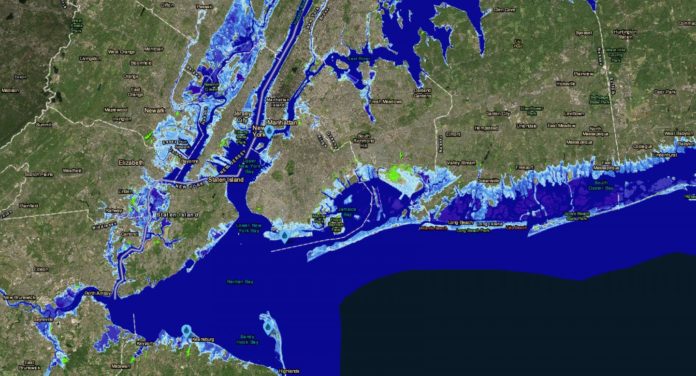Since the start of the century, global average sea-level has risen by about 0.2 feet. A new study suggests that it could rise by nearly 8 feet by 2100 and 50 feet by 2300 if greenhouse gas emissions remain high and humanity proves unlucky.
Under moderate emissions, central estimates of global average sea-level from different analyses range from 1.4 to 2.8 more feet by 2100, 2.8 to 5.4 more feet by 2150 and 6 to 14 feet by 2300.
Furthermore, with 11 percent of the world’s 7.6 billion people living in areas under 33 feet above ocean level, rising oceans represent a noteworthy hazard to coastal populaces, economies, foundation and biological communities around the globe.
Ocean level ascent shifts over area and time and researchers have built up a scope of strategies to remake past changes and project future ones. Be that as it may, in spite of the varying methodologies, an unmistakable story is developing in regards to the coming decades: From 2000 to 2050, worldwide normal ocean level will doubtlessly ascend around 6 to 10 inches, however, is greatly far-fetched to ascend by in excess of 18 inches. Past 2050, projections are more delicate to changes in greenhouse gas emissions and to the methodologies for anticipating sea-level change.
Study co-author Robert E. Kopp, a professor in the Department of Earth and Planetary Sciences at Rutgers University-New Brunswick and director of Rutgers’ Institute of Earth, Ocean, and Atmospheric Sciences said, “There’s much that’s known about past and future sea-level change, and much that is uncertain. But uncertainty isn’t a reason to ignore the challenge. Carefully characterizing what’s known and what’s uncertain is crucial to managing the risks sea-level rise poses to coasts around the world.”
Scientists used case studies from Atlantic City, New Jersey, and from Singapore to discuss how current methods for reconstructing past sea-level change can constrain future global and local projections. They also discussed approaches for using scientific sea-level projections and how accurate projections can lead to new sea-level research questions.
The study is published in Annual Review of Environment and Resources.
